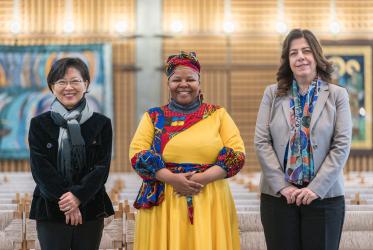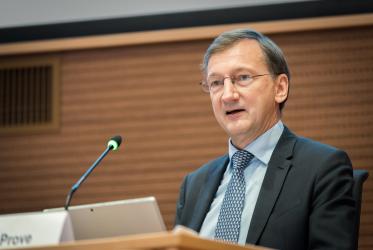Displaying 1 - 20 of 226
Tres comisiones del CMI eligen vicemoderadoras
14 March 2024
Trois commissions du COE élisent leur vice-présidente
14 March 2024
Three WCC commissions elect vice moderators
08 March 2024
WCC submits comments on draft UN “Pact for the Future”
12 February 2024
"A world free from nuclear weapons is possible"
11 September 2023
WCC offers input to the UN New Agenda for Peace
13 April 2023






